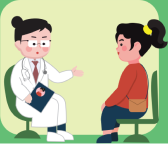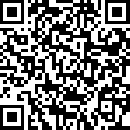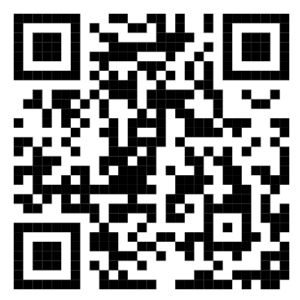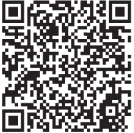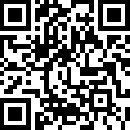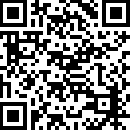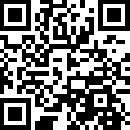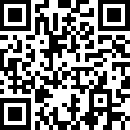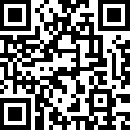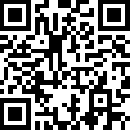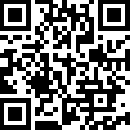Japanese companies are required by law to provide health examinations for their employees to ensure that they can work in good health and with peace of mind.Various efforts are made to improve workplace environments and working conditions.This section explains what to do to prevent getting sick or injured while working at a company, what to do if you get sick or injured in connection with your work, and about the industrial accident insurance system, etc.It also contains information about what constitutes “power harassment” and “sexual harassment,” which are prohibited in workplaces, and about consultation services for people who have been subjected to such harassment. To prevent getting sick or injured …

4. 1 I have heard about health checks. What are they for and how are they done?
• They are so that you can continue working at your company in good health. To check for early signs of the onset of a disease that you have not noticed yourself, they draw blood and do other tests. If the start of a disease can be detected early, treatment can be started early, and you will be able to continue working in Japan in good health until the end of your term. It is decided by law, so you are urged to undertake it. (Your company is required to provide these health checks.)
• If you are unable to undertake the health check, first ask your company. If you are a technical intern, seek advice from your supervising organization or from the Native Language Consultation Center of the Organization for Technical Intern Training (OTIT). (See 4-12.)

 Comment
Comment  Did this information help?
Did this information help?
4. 2 How many times a year do I undertake a health check? How much does it cost?
• Once a year. However, people whose work involves handling substances that could cause illness and people who also work at late at night may undertake them once every six months.
• You can undertake the health check free of charge.


4. 3 Can I add extra tests when I undertake my health examination?
• The matters investigated in the health check are decided by law. You cannot add extra tests that you want.
• Women aged 20 years and over can undertake tests for cervical cancer not at their company but in the city, town or village where they live once every two years.It is either free or costs only about ¥500.If you want to know more about cervical cancer screening, read the column in 3. Sexual and Reproductive Health .


4. 4 If I become physically or mentally unwell or get injured at my company, what should I do? Can I take time off work?
• You can also take time off work. Your company will have enrolled in something called Industrial Accident Compensation Insurance for times when you become sick or injured in connection with your work. If your company applies for and is approved for this insurance, the costs for your hospital visits will be covered, so you don’t need to worry about money. You can also take time off work. Even if you become unable to work due to severe illness or injury, you will not be forced to quit your company immediately.
• You can also take time off work if you become injured or ill outside of work. The number of days you are able to take off will vary by company, so first ask your company. You will not be forced to quit your company during that number of days.
• If the company has enrolled you in health insurance, you will be able to receive the money needed for treatment and a portion of your wages for the period you are unable to work for up to one and a half years. Please check with your employer about whether or not you are enrolled in its industrial accident insurance and health insurance. If you are a technical intern, seek advice from your supervising organization or from the Native Language Consultation Center of the Organization for Technical Intern Training (OTIT). (See 4-12.)



4. 5 I was injured in a traffic accident. What should I do?
•If the traffic accident occurred during work or on your way to work, you will be covered by the Industrial Accident Health Insurance that was explained in 4.4. Consult with your company immediately.
• If the accident was unrelated to your work, the person who caused the accident will pay the costs of your treatment. Ask the other person involved in the accident for their contact details.
• If you are in a traffic accident, you are required to call the police (Tel: 110).



4. 6 What will happen if I die, lose consciousness, incur a lifelong injury, or fall into a similar state while in Japan?
• If that kind of thing happens to you due to illness or injury related to your work, the costs of treatment will be covered by the Industrial Accident Insurance explained in 4.4. If you are left with a disability, you will receive a large sum of money, and if you die, that money will be paid to your family.
• Depending on the type of insurance taken out for you by the company or your supervising organization, you will receive money, or if you die, money will be paid to your family, from that insurance. You should check with your company or supervising organization.
If you are still not sure even after asking your company, seek advice from your supervising organization or from the Native Language Consultation Center of the Organization for Technical Intern Training (OTIT). (See 4-12.)

Detailed Information in Japanese

4. 7 I am worried about being exposed to danger because I have to do unfamiliar work straightaway.
•For work that is dangerous if you are unfamiliar with it, the law requires that you must receive training before starting that work. Examples of such work are welding, forklift driving, and crane operation. Ask your company about your wish to receive training before starting work in earnest. If you are fearful about anything, do not hesitate to consult your supervisor.
• If you are a technical intern, seek advice from your supervising organization or from the Native Language Consultation Center of the Organization for Technical Intern Training (OTIT). (See 4-12)


4. 8 The working conditions I am working in are harsh (smelly, dark, cramped, noisy, hot, cold, constricting position, unsafe).What should I do?
• Consult with your boss, the Health Supervisor, or Safety and Health Promoter, etc. at your company.
• The Health Supervisor or Safety and Health Promoter are people in your company whose job is to make the working environment better.If you are a technical intern, seek advice from your supervising organization or from the Native Language Consultation Center of the Organization for Technical Intern Training (OTIT). (See 4-12.). Alternatively, ask a Japanese speaker whom you can trust to help you consult with a Labor Standards Inspection Office*1.
• *1 Labor Standards Inspection Offices are government offices that monitor whether companies are complying with the laws to ensure that their employees can work in good health and with peace of mind. You can use the QR code below to search for a Labor Standards Office in the area where you live. Ask someone who understands Japanese or a Japanese person near you.

Find out more!
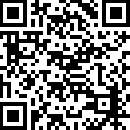
Comprehensive consultation service for foreign workers (14 languages)
Minstry of Health, Labour and Welfare


4. 9 My boss at my company is always saying harsh things to me or being violent toward me, and I am very scared. What should I do?
• Consult with your company’s advice helpline. This behavior may be power harassment.Power harassment is when a person in a superior position to you scolds you verbally with unnecessarily harsh words or is violent toward you, making you feel so afraid that you do not want to go to work.
•If you have been subjected to power harassment at your company, make a proper written record of when, where and by whom, what kind of damage you sustained, and how it made you feel.Verbal abuse often becomes a dispute over whether or not something was said, so take an audio or video recording. Keep hold of any e-mails or letters that contain abusive language.If there has been physical violence, take photographs or be examined by a doctor and obtain a medical certificate.
• If you are a technical intern, seek advice from your supervising organization or from the Native Language Consultation Center of the Organization for Technical Intern Training (OTIT). (See 4-12.).
• If you have been subjected to physical violence, you can also consult the police.
• You can also consult the Advisor for Foreign Workers Section of the Prefectural Labor Bureau.

Find out more!
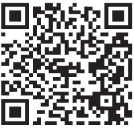
* Comprehensive consultation service for foreign workers (14 languages)
Minstry of Health, Labour and Welfare

4. 10 No matter how many times I say no, a work colleague keeps acting toward me in a sexual way, such as asking me to have dinner or to go out just the two of us, or touching me unnecessarily. What should I do?
• This behavior may be sexual harassment.
• Sexual harassment is when a person, regardless of their gender, says or does something to you that you do not like of a sexual nature.
• If, when a person says or does something of a sexual nature, you tell them to stop and they then start to harass you in your work, that is also sexual harassment.
• If nothing changes even if you seek advice at your company, you can consult your local Prefectural Labor Bureau’s Employment Environment and Equality Department (Office).
• You may also be committing sexual harassment against another person without realizing it,
so be careful of your own behavior.
• If you are a technical intern, seek advice from your supervising organization or from the Native Language Consultation Center of the Organization for Technical Intern Training (OTIT). (See 4-12)
SOS and emergency consulting service for technical interns (8 languages)
Such as harassment or being forced to return to your home country
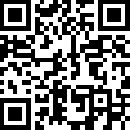
• This is a consultation service for sexual crimes and sexual violence.
• Nationwide toll-free number #8891 (available 24 hours a day)
• This will connect you to the nearest One-Stop Support Center for victims of sexual assault and sexual violence.


[Detailed Information in Japanese]
[Seek Advice in Japanese]

4. 11 I have heard that there is something called a labor union at my company. If I get sick or injured, what kind of assistance can I receive from the labor union?
• The labor union will negotiate with the company if you become ill or injured and you are told that you have to quit the company if you cannot work. It will also respond to consultations if there are problems with the payment of your wages, or if it looks like you are about to be forced to quit, or regarding power harassment or sexual harassment.
• Anybody can join a labor union, regardless of what country they are from, what kind of religion they believe in, whether they are male or female, and any other way in which they may differ from other people.

Information in Japanese
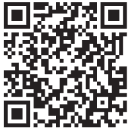
* Network for the Rights of Technical Intern Trainees (Japanese)
A national network of individuals and organizations that accept requests for consultations from technical intern trainees and engage in solutions to their problems on a daily basis
Additional information
Column: Things to be Careful at the Turn of the Seasons
Japan has four distinct seasons: spring, summer, autumn, and winter.Around the turn of each season, the temperature and humidity can increase or decrease suddenly, which can make you more prone to getting sick, so please be careful.

Summer in Japan is the hottest season of the year.
From June to mid-July, there is a period known as “tsuyu” or the rainy season. During tsuyu, rainy and muggy days continue, and there are not many fine days.Once tsuyu is over, temperatures rise suddenly, and full-scale summer arrives.All over Japan, summer festivals and fireworks festivals are held.
When the heat is severe, it is very important to regular the indoor temperature with air conditioning or an electric fan, etc. and to drink plenty of fluids to stay hydrated.

Autumn in Japan is a very comfortable season. It is famous for the autumn colors, when the leaves of the gingko and maple trees turn red and gold.“Tsukimi,” or moon-viewing, where people decorate with susuki (Japanese pampas grass) and sweet dumplings called dango, is held.

Winter in Japan is the season when it becomes cold. From January to February, the temperature falls below freezing point in some regions, and in Hokkaido, Tohoku, and some parts of the Sea of Japan side, there are days when heavy snow falls and piles up.When it is cold, you will need to adjust your clothing, such as wearing socks and a coat.Also regulate indoor temperatures with a heater, etc.New Year is in winter, and you can see people celebrating the new year with luxurious cuisine called o-sechi.
Because it is easier to become unwell around the turn of the seasons, you should take extra care of your health and make sure to get plenty of sleep.


4. 12 More information and consultation services
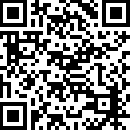
* Comprehensive consultation service for foreign workers (14 languages)
Minstry of Health, Labour and Welfare
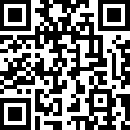
Organization for Technical Intern Training (OTIT)
Native Language Consultation Center for technical interns (8 languages)
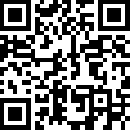
Such as harassment or being forced to return to your home country



